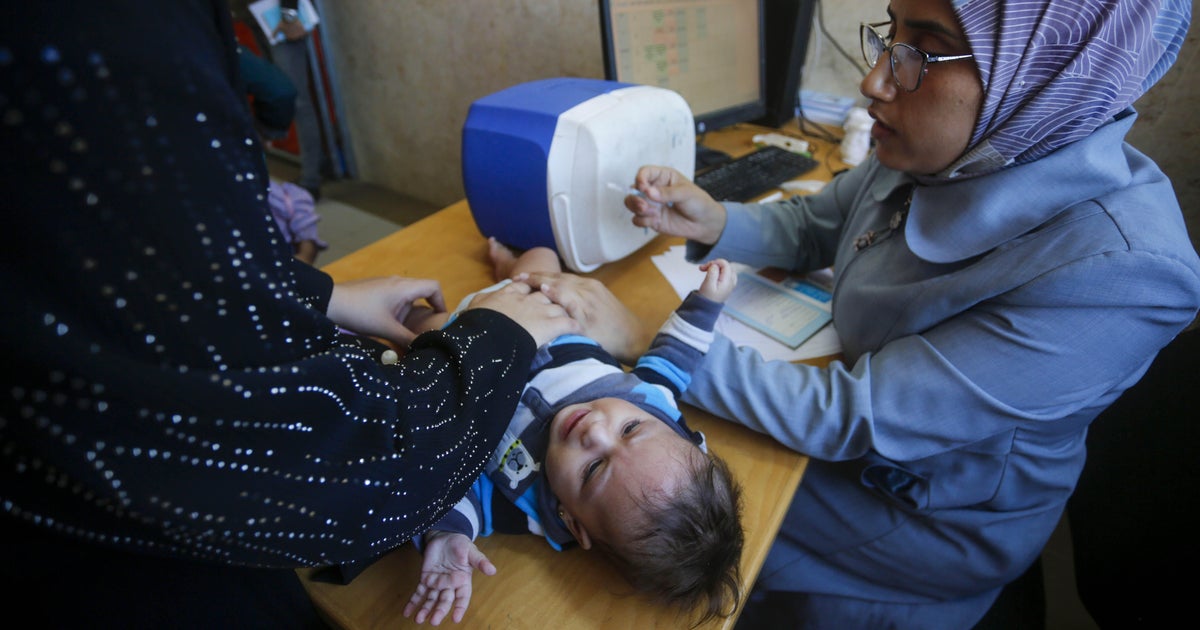/ CBS/AP
UNRWA's Gaza director on humanitarian crisis
U.S. State Department spokesperson Matthew Miller said in a briefing on Monday that the Biden administration was deeply concerned about a vote by Israel's parliament to pass two laws that could prevent the U.N. agency for Palestinian refugees — the largest aid provider in Gaza — from operating in the Palestinian territories.
The Knesset vote was the culmination of a long-running campaign against the United Nations Relief and Works Agency for Palestine Refugees in the Near East, known as UNRWA, which the Israeli government contends has been infiltrated by the militant group Hamas. UNRWA denies the allegations.
"UNRWA workers involved in terrorist activities against Israel must be held accountable," the office of Israeli Prime Minister Benjamin Netanyahu said on social media hours after the Knesset vote. "Since avoiding a humanitarian crisis is also essential, sustained humanitarian aid must remain available in Gaza now and in the future. In the 90 days before this legislation takes effect — and after — we stand ready to work with our international partners to ensure Israel continues to facilitate humanitarian aid to civilians in Gaza in a way that does not threaten Israel's security."
Miller said the passage of the legislation could have implications under U.S. law and U.S. policy.
"We have made quite clear to the government of Israel that we are deeply concerned," he said.
Miller outlined the role UNRWA has in providing humanitarian assistance for Palestinians in the region, particularly in Gaza.
"They really play an irreplaceable role right now in Gaza, where they are on the front lines getting humanitarian assistance to the people that need it," Miller said. "There's nobody that can replace them right now in the middle of the crisis. So we continue to urge the government of Israel to pause the implementation of this legislation ... and we will consider next steps based on what happens in the days ahead."
The Knesset vote prompted outcry from the United Nations, as well as from governments around the world.
"There is no alternative to UNRWA," U.N. Secretary-General António Guterres said in a statement. "I call on Israel to act consistently with its obligations under the Charter of the United Nations and its other obligations under international law, including under international humanitarian law and those concerning privileges and immunities of the United Nations. National legislation cannot alter those obligations. The implementation of these laws would be detrimental for the resolution of the Israeli-Palestinian conflict and for peace and security in the region as a whole."
Guterres said he would be bringing the matter to the U.N. General Assembly.
The governments of Ireland, Norway, Slovenia and Spain also condemned the move and said in a joint statement that "the legislation approved by the Knesset sets a very serious precedent for the work of the United Nations and for all organizations of the multilateral system."
The four countries said they will "continue to work with donor and host countries to ensure the viability of UNRWA's work and its humanitarian role," the statement said.
The U.K. called UNRWA "a lifeline" for Palestinians, and its foreign secretary said in a statement on social media that "the bills restricting UNRWA are totally wrong."
Germany said the legislation would "effectively make UNRWA's work in Gaza, the West Bank and east Jerusalem impossible ... jeopardizing vital humanitarian aid for millions of people."
If the bills are implemented, "there will be severe humanitarian consequences on the people that we serve," UNWRA Director of Communications Juliette Touma told CBS News. "Why not focus on what really needs to happen right now, which is a cease-fire and deal to release the hostages and an improvement also in line with what the letter from the United States said that was sent to the Israeli government to increase the flow of humanitarian supplies. That's what the focus should be on right now."
Hamas said the vote was an act of "Zionist aggression."
The war between Israel and Hamas began when Hamas-led militants stormed into Israel on Oct. 7, 2023, killing some 1,200 people, mostly civilians, and abducting around 250. Some 100 hostages are still inside Gaza, a third of whom are believed to be dead.
Israel's retaliatory offensive has killed over 43,000 Palestinians, according to local health authorities. Around 90% of the population of 2.3 million have been displaced from their homes, often multiple times.
contributed to this report.
